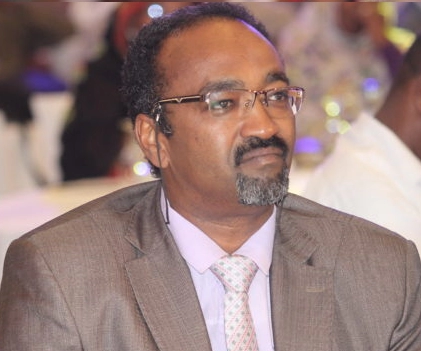The Coup of “Ab Kiyan” Against Hemedti!

By Dr. Muzammil Abu Al-Qasim
It’s illogical for the leader of the rebellion to wage a fierce war to establish and solidify the foundations of the so-called “State of the Cause” and then be absent from the signing ceremony of the founding charter of the alleged state. Therefore, Hemedti’s absence from the Nairobi “fanfare” has sparked a storm of legitimate questions about the reasons and motives behind this strange absence.
If we overlook the numerous interviews Hemedti gave to Arab satellite channels at the start of the war, we’ll note that his only public appearance since the outbreak of the war on April 15 lasted about ten days, from December 26, 2023, to January 6, 2024. During this period, Hemedti visited Uganda, Ethiopia, Kenya, Rwanda, South Africa, and Djibouti before disappearing from sight again, limiting his presence to a few recorded speeches—some audio-only and others with both audio and video.
The significant point is that the rebel leader’s disappearance coincided with the intense public presence of his brother and deputy, Abdel Rahim Dagalo, on both the political and military fronts. Abdel Rahim has been actively engaged in numerous tours inside Sudan (including continuous meetings with tribal leaders in Darfur and Kordofan) and has maintained a strong presence on the regional stage, visibly dominating the media scene in Nairobi during the so-called founding conference of the parallel state.
All these factors suggest that something unusual and unprecedented is happening within the militia’s leadership. Abdel Rahim Dagalo seems to have become the de facto leader, with Hemedti absent even from the celebration of the birth of his alleged state.
It’s worth recalling that in April of last year, the Rapid Support Forces (RSF) organized a workshop in Kampala, the Ugandan capital, to restructure its civil and political activities. It was decided there that Abdel Rahim Dagalo would take over the leadership of the RSF’s Civil Coordination Council, replacing Hemedti. Shortly after this decision, Youssef Ezzat stated in a statement that he had requested to be relieved from his duties due to internal restructuring (which transferred his responsibilities to Abdel Rahim). He added, “Since I am a civilian working in a non-military role and am not part of the RSF’s structure—and for other reasons to be revealed later—I requested to be relieved from my position, which was based on a personal relationship rather than a formal one with Mohammed Hamdan Dagalo (Hemedti) since our childhood.”
Two days ago, following the Nairobi uproar, Abdel Rahim Dagalo spoke critically about the fact that he and his brother both held leadership positions in the militia. He described this as a negative aspect and went on to criticize the political forces allied with him (such as the Umma Party) with harsh language and pointed remarks. His comments implicitly suggested an intention to rectify the problem of shared leadership with his brother at the top of the militia’s hierarchy.
What’s clear and indisputable is that Hemedti is no longer the leader of the militia. His brother, Abdel Rahim Dagalo—known for his ignorance, impulsiveness, recklessness, racism, and sharp temperament—has become the true leader and decision-maker within the militia.
Hemedti’s disappearance from the leadership scene is likely due to one of three scenarios:
1. A serious decline in his health due to complications from hepatitis C, which he was officially diagnosed with in 2016.
2. A directive from the “sponsor” stating that Hemedti has outlived his usefulness and is no longer fit to lead.
3. A soft coup carried out by Abdel Rahim against his ailing brother, seizing control of the militia in alignment with the sponsor’s wishes and to fulfill his own ambitions.
Regardless of which scenario is true, one fact remains clear: the era of Hemedti’s leadership of the Rapid Support Forces is over. Power has shifted entirely to “Ab Kiyan,” who has led the RSF into a new alliance with historically rebellious movements against the Sudanese state—led by Abdelaziz al-Hilu, Joseph Tuka, Suleiman Sandal, Al-Hadi Idris, and Al-Tahir Hajar, among others. Abdel Rahim is working hard to solidify this new alliance by courting Abdul Wahid Mohammed al-Nur, aiming to bring him into the fold. Therefore, it would not be surprising if Hemedti permanently disappears from the scene in the near future—either by announcing his retirement or through assassination at the hands of his reckless and ambitious brother, who has become an easily manipulated puppet in the hands of the sponsor—the main funder, decision-maker, and sole controller of the criminal militia and its new leader.



